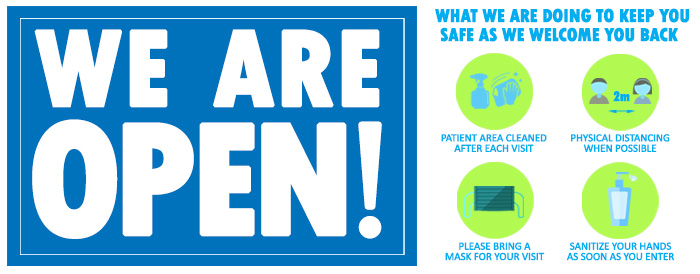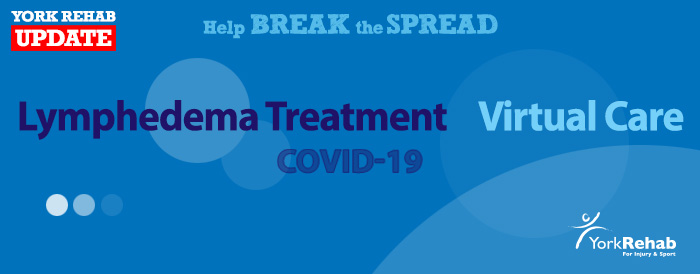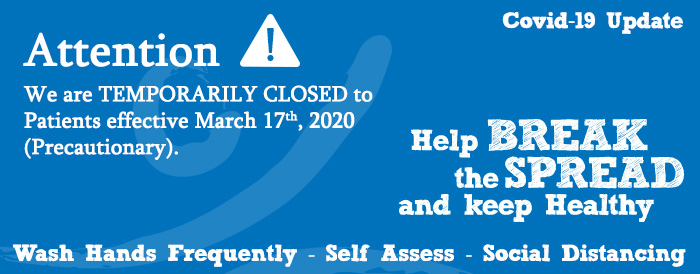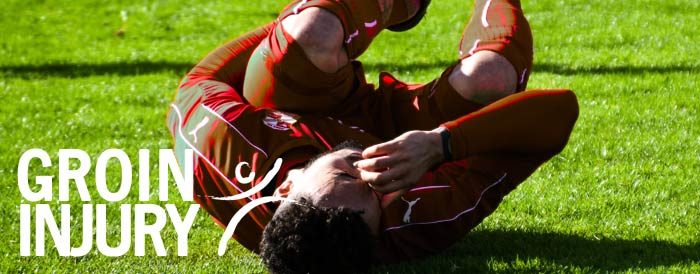Newmarket Physiotherapy
We Are Welcoming Patients Again
June 10th, 2020 – We are welcoming patients back to our clinic, although remaining at home is the best way to stay safe. However, if you feel a visit to the clinic is necessary at this time and the benefits outweigh the risk, call to make an appointment. We want you to know we are doing everything we can to keep you safe.
Every Visitor to the Clinic will be Screen for Covid-19 Symptoms
If you are experiencing any symptoms of covid-19, please cancel your appointment.
If you are coming to the clinic, please come within 5 minutes of your arranged time. Avoid coming too early as we are doing our best to avoid having more than one person in our waiting room. Please do not bring anyone with you for your appointment unless absolutely necessary.
What to expect when you arrive
We want you to know our inside door is locked. It allows us to screen visitors before they enter the clinic. This also helps us ensure we don’t have too many people in the waiting room at once.
When you book your first appointment, we will screen you for covid-19 symptoms. At each onsite visit, we will require you to complete a questionnaire so we can screen for symptoms. Please give that to your clinician during your appointment.
Before you enter the clinic, you can call from your vehicle to ensure you clinician is ready and your room has been cleaned in preparation for you to enter.
New patients will receive an intake form which can be completed in your car if you wish.
How We Are Keeping You Safe
We have separate rooms, allowing you to stay a safe distance from other people.
All staff are wearing masks. We require everyone entering the clinic to have a mask or face covering.
Our front reception has plexiglass to provide a screen for your safety.
We are asking people to keep physically distanced. As you are aware, treatment requires your clinician to stand closer than 6 feet but we are taking every precaution we can to keep you safe.
We are asking people not to touch anything in the clinic unless it is needed for your treatment. Everything will be cleaned once it is touched.
The washroom will be cleaned after each use; if you use the washroom please advise us after.
We have significantly spaced our appointments out to ensure we have time to clean the room and supplies between patients.
Virtual Care Reminder
As an alternative to visiting our clinic for treatment, patients are able to book an online treatment session (Virtual Care) with a Physiotherapist where the entire appointment is conducted remotely. This allows you to remain in the safety and comfort of your home.
Thank you for your patience during this time. Our goal is to continue to provide the best treatment while keeping both staff and all visitors to the clinic safe.
Clinic Update
May 15th, 2020 – The following communication was circulated via email.
Update: Lymphedema Treatment, Virtual Care and Covid-19
Dear Patients
We hope you are keeping safe, healthy and practicing the guidelines issued by the health authorities. The war against this pandemic can only be won if we each do our part being rigorous with our hand hygiene, maintain proper distancing and stay home unless it’s absolutely necessary to go out. We would also like to extend a huge heartfelt thanks to the frontline and essential workers who continue to risk their well-being as well as their family members as they bravely continue to show up for us…THANK YOU!
Our clinic continues to remain closed, only servicing urgent care patients. However, we have expanded our treatment capability allowing us to offer Virtual Care as an online option – that’s right, you can now receive treatment from the comfort of your home. It’s completely secure, all done online and is covered by your private health insurance. If you’re interested, contact us to discuss your situation and we’ll assess your case to determine your options.
Our team now includes a Lymphedema Certified Therapist. Lymphedema is a disease that results in extreme swelling, usually in an arm or leg (one-sided). This is caused by dysfunctional lymph nodes which are located in the armpits, neck and groin. Your lymphatic system is tasked with immune function and circulation. Lymph vessels move fluid out of tissues and break down and eliminate waste products. If this process isn’t working properly the buildup of lymph fluid occurs resulting in chronic and severe swelling that can increase without proper treatment at the onset. You can learn more via our website.
Lastly, our professional associations support the recommendations issued by our health authorities where physical distancing must be optimized so we anticipate not re-opening before the beginning of June, pending word from the Premier. However, for “non-urgent” care you can contact us to discuss the options available to you through our Virtual Care.
As we navigate through this unprecedented situation, please continue to maintain the guidelines put forth by the health authorities and reach out to someone if this experience is taking a toll. We wish you strength and wellness and hope that we can all return to some semblance of normalcy soon.
York Rehab Management.
Clinic Update #2
Tuesday March 17th, 2020 – 7am: Services Temporarily Suspended (Precautionary)
Dear Patients,
We continue to closely monitor developments as they relate to the coronavirus (covid-19) situation. Our clinic is staffed by Physiotherapists and Chiropodists. The professional associations and/or governing bodies for each of our practices have issued strong recommendations that as a precautionary measure, all non-essential and elective services be suspended immediately. In response to this directive, our clinic has made the difficult decision to temporarily suspend patient services effective March 17th, 2020.
If you require urgent care, do not hesitate to contact reception from 8am to 4pm at 905-715-7201 to discuss your options (Covid-19 screening still applies).
Our wish is that we are doing our part to support social distancing which can flatten the curve in the spread of this virus.
This may be a stressful time for you. Educate yourself by following reputable sources for information on this situation such as the Ontario Ministry of Health or similar government bodies. Do remember to wash your hands frequently and carefully (even while inside your home), sanitize your phone, clean doorknobs and latches regularly and speak to someone if you’re worried or stressed. We are all in this together. Stay healthy and safe. We will continue to issue updates on our status as the need arises.
York Rehab Management
Groin Injury
Groin injuries are a common injury amongst active people, as well as those unlucky enough to strain the area by falling, tripping, or getting their leg caught on something. It is usually characterized by pain along the inner thigh where the muscles are thought to have been over-stretched. It also has a reputation for being a “difficult” injury to recover from, although this reputation is somewhat undeserved. Sometimes the nature of the injury is incorrectly assumed from the beginning, which can lead to ineffective treatments and prolonged pain. Groin pain following a strain can result from several different injury mechanisms, each of which requires a different management approach.
Groin or inner thigh pain can be a manifestation of a hip joint problem. The hip is a ball and socket joint that is lined with cartilage and surrounded by other supportive soft tissue for protection. Sometimes when the groin is “strained”, the soft tissue can become pinched and cause pain. The resulting pain comes from compression of this tissue by normal hip movements. Usually, though, the hip can be “unlocked” by moving it in the proper direction, which can be found under the supervision of a well-trained physiotherapist, and relief of pain will quickly follow.
Another possibility is that the ligaments and tendons of the groin take the majority of the force rather than the muscles themselves. These tissues have notoriously poor blood supplies and so don’t receive the nutrients and support needed for good quality healing. Therefore, they can remain painful for weeks or even months if the proper intervention is not undertaken. However, they are quite responsive to tension or resistive forces, and with a specific exercise program, they can be remodeled slowly to decrease the pain and regain the strength. This does require discipline, as the changes will occur slowly over a number of weeks, but should ultimately result in recovery.
When a groin strain primarily affects the muscular tissues, which is what most people assume groin injuries to be, healing will usually proceed over a number of weeks, because of the aforementioned good blood supply. As long as the muscles are not over-stressed during this healing period, and movement and strength are gradually regained as the symptoms allow, the recovery will proceed uneventfully.
For all the different injury mechanisms listed above, once full movement and strength of the area have been attained, treatment will focus on recovering a level of function required by the person’s work or athletic activities. For example, a physiotherapist can guide a tennis player to safely progress and return to running, cutting, lateral movements, and lunging, all of which are necessary components of the sport.
In summary, the crux of the matter with groin injuries is to determine what kind of problem it is. To say you have a “groin injury” on its own does not say enough for a healthcare professional to be able to treat it effectively; they have to be able to understand it on a deeper level to direct the appropriate treatment. The physiotherapists at York Rehab possess the assessment skills necessary to diagnose such injuries and help you to recover as efficiently and effectively as possible.
Physiotherapy to Fix Your Headache
Headaches are a common ailment experienced by many people. Headaches are known to have a number of causes, and the treatments are as varied as the headache symptoms themselves. Many of us accept headaches as unavoidable and are often treated with over-the-counter or prescribed medications. For some people, headaches can be quite debilitating and also resistant to traditional therapies. One possible therapeutic option that is less well-known to the general public is physiotherapy. Headaches that are “mechanical” in nature – emanating from the joints or muscles around the head and neck often affected by movement or positioning – can often be effectively treated with physiotherapy.
Mechanical headaches can come in several forms. The first type of a mechanical headache is a secondary consequence of neck problems. People who have neck pain, stiffness, or loss of movement may have accompanying headaches but may not associate their pain with a neck problem. If the headache symptoms began around the same time as the neck symptoms did, there is a good chance it is mechanical and therefore treatable with physiotherapy. When the neck symptoms are addressed by adopting exercise and postural strategies that your physiotherapist can show you, the headaches tend to fade away. Or, as neck movement improves with physiotherapy treatment, a noticeable reduction in headache intensity is experienced at the same time.
The second category of a mechanical headache is one where there is no or very little neck pain or stiffness, with the head pain being the primary symptom. If this kind of headache varies with seated positioning, such as worsening with prolonged slouched sitting at a desk and improves with more upright posturing, then the pain source is likely mechanical. And there’s an increased likelihood the headache will respond to physiotherapy treatment.
Often, people mistakenly attribute headache symptoms to “stress”. In reality, someone in a stressful situation is less likely to pay attention to their posture and positioning, which can ultimately lead to a headache. Most of the time with these types of headaches there is a key position or movement that if performed repetitively, or held as a stretch can give rapid relief. The responsiveness to treatment varies from person to person.
This is not to suggest that all headaches are mechanical. There are many headaches that will not respond to physiotherapy treatment. If your headache is constant and doesn’t vary with positioning or movement, it is less likely to be mechanical. Determining whether positioning and/or specific movements are the root cause is something a well-trained physiotherapist can help you with. Two or three appointments would usually be a sufficient amount of time for a therapist to determine whether your pain is mechanical. If you decide to see a physiotherapist for your headache and it’s determined that the pain is not mechanical in nature, you will be referred back to your doctor.
If you have a persistent headache that is not responding to medication, put down that pill bottle and pick up the phone to make an appointment with a physiotherapist. A visit to a registered physio will get you a comprehensive assessment to see if your headache has mechanical features – a McKenzie trained physiotherapist can help with this. If the cause it mechanical, they will be able to show you how to self-manage it and what to do to prevent it from coming back which can be a wonderful option that excludes the need for pills. It is surprising how rapidly this approach can work, even with headaches that have previously persisted for months or years. Explore your options; a physiotherapist may be able to offer you quick relief allowing you to return to living your life – hopefully, full of activity.






